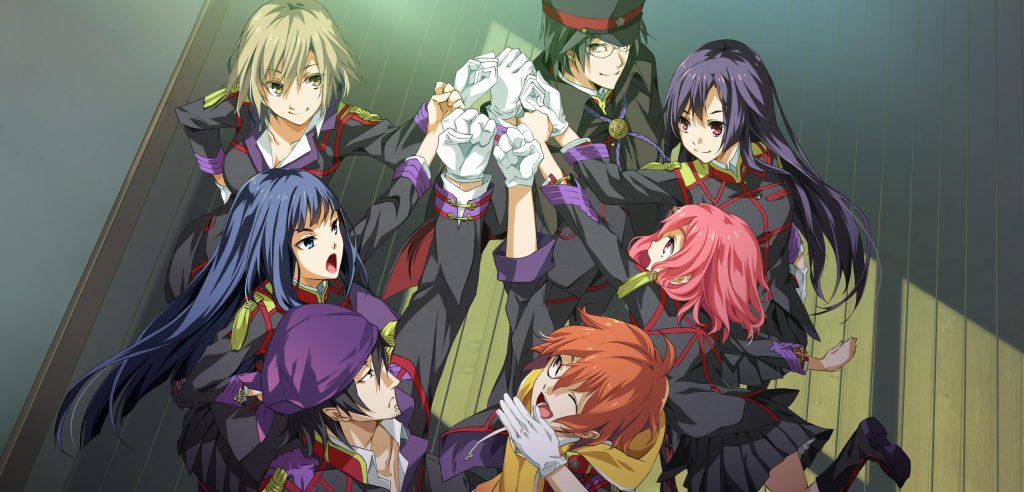
My brain is mush after marathoning through this.
Review may contain some structural and mild thematic spoilers. Actual or larger spoilers are marked. This is my first Masada Takashi work, so I can’t really compare this work to his other ones.
Senshinkan is a well-produced, multilayered work that showcases a cast of well-developed characters and a simple, but intertwined philosophy at its pith. The prose is often grand, at times, belaboring, but ultimately succeeds in conveying the work’s purpose. Familiarity with Japanese literature (namely the synopsis of Nansō Satomi Hakkenden (八犬士) & Soseki generally) is not essential to, but would improve the reader’s appreciation of the work — same goes for ~20th century Japanese history & Buddhist iconography/literature. The work can be construed as a multi-route mystery – for better or worse; nothing is truly known until the true route – but this revelation doesn’t rob the other routes of their meaning, but instead, empowers them.
The work’s greatest strength derives from its characters – both in their interactions and in how they relate to the work’s central message. Masada writes strong, meaningful characters. Whereas in some works, the main characters are archetypal and static, and the side characters are written for the primary purpose of advancing the story, in Senshinkan, each character has a sense of agency that propels them as the hero of their stories. I’d go as far to say that this work doesn’t really have a singular protagonist, as perspectives shift, and each character, even the ones otherwise fated to be support characters, have their own compelling storylines (in fact, some of the best parts of the novel came from interactions that don’t include the protagonist). This much is evident from the route structure – in more routes than one, the protagonist wasn’t the main character of the story; he wasn’t the typical character written in to ‘save’ the heroines (in fact, he ended up being saved on more than one occasion).

I found the group chemistry among the main characters to be especially strong. Often, authors write in the characters as having known each other since forever, but fails to convincingly show that. Masada manages to write entertaining, slice-of-life scenes that show the close propinquity of the cast. When I read through the novel, it felt natural to think “these characters probably hang out with each other even when the protagonist isn’t there.” This feature made them feel more like complex, living people as opposed to fictional characters. Masada’s success in developing a group dynamic made it natural to think that the protagonist could end up with any of the heroines — i.e. no fate which ties the protagonist to the story-appropriate true heroine (the true heroine in this game is only true by means of her importance to the plot – not her personal connection to the protagonist).
The antagonists, while not bad, didn’t shine as much compared to the main cast. While the antagonists were generally aligned with the work’s core message/philosophy, they just didn’t seem too compelling – possibly due to the multi-route mystery structure that made their motivations opaque until the final moment. Indeed, this was actually one of the reasons that I didn’t really like the work too much at the start. The reader is essentially ‘blind’ until the true route – meaning the reader knew that the antagonists had a nondescript reason for fighting, but didn’t know the nature of it. In effect, most of the fights felt ‘meaningless’ until this revelation. I’m of the belief that fights in a chuunige shine because it’s generally a clash of ideals/beliefs materialized through other-worldly, godly power. Fights lose their meaning and their impact become attenuated when nothing profound – like a purpose – is instilled in the exchange of blows. Descriptive prose in itself only goes so far to entertain when the reader already has a good idea of who wins a fight by virtue of when the fight happens.

As mentioned above, the work successfully ties in its characters and their associated developments with the central message of the work, namely: 我も人、彼も人。ゆえに対等、基本だろう . This message is vocalized at several points in the game. While I didn’t really find the message to be that compelling or personally interesting, I felt that it was well-developed. Each character in the work and their associated conflicts can be construed as relating to this central philosophy.
The work’s central plot/mystery is no slouch either — it has a pretty innovative take on what I perceive to be an overused plot device (the time loop). Going into detail here would be spoiling the work, so I’ll just leave it at that. The work is also well-produced, meaning that its most epic scenes are accompanied by solid music + CG/animations. I was impressed at how consistently great the CG was (not just good — but way, way above average).
Ultimately, I appreciate the work for what it wanted to do and how it went about executing it. Personally, while I didn’t personally vibe that much with the work, it was a positive experience. It’s fundamentally solid and cemented well above ‘average’ – but it doesn’t break into the “something more” territory (for me at least).